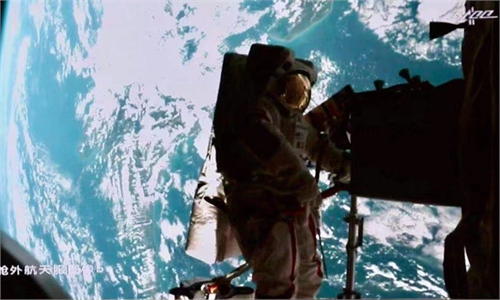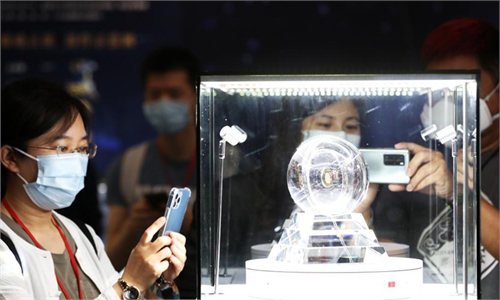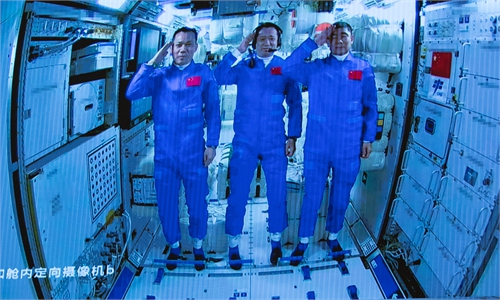HK youths to talk with taikonauts in space over phone, boosts sense of identity and national pride
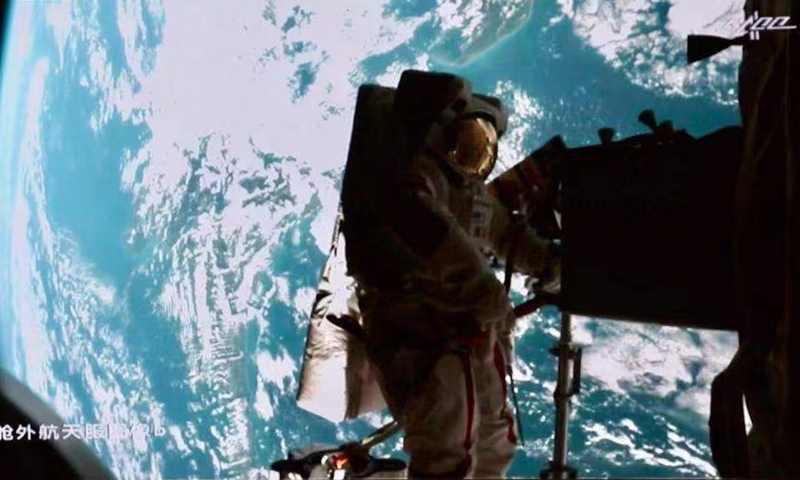
Nie standing on robotic arm takes photo with Earth. Photo: CMSA
Youths from the Hong Kong Special Administrative Region (HKSAR) will have the chance to engage in a real-time Earth-space phone talk with the taikonauts onboard China's Tianhe space station core cabin on September 3. The Chinese taikonauts are expected to give the young Hong Kong residents a virtual tour inside the cabin and answer their questions, media reported.
Experts say the event will be a great boost for national pride and the sense of belonging among Hong Kong's younger generations, who are keen to study science progress around the world but lack knowledge of China's robust development in this regard.
Apart from talking on the phone with the taikonauts, the event will invite experts from China's Manned Space Agency to introduce the Beijing Aerospace Control Center, as well as the country's space station system planning and astronaut training system to the Hong Kong youngsters, the Xinhua News Agency reported on Saturday.
Starting from Monday, Hong Kong residents can leave messages and questions for the taikonauts and aerospace experts via the official website of the Hong Kong STEM Education Alliance, and all participants will receive a souvenir of China's manned space project. The alliance will draw a number of first to third prizes from among the participants and send aerospace-themed gifts to them.
"The high technologies in China were rarely presented in HKSAR in the past, resulting in the fact that Hong Kong teenagers, who have always had great interest in technological breakthroughs, know a lot about aerospace achievements in other countries but could not realize how powerful their own country has become in the field," Song Zhongping, a Hong Kong-based space analyst and TV commentator, told the Global Times on Sunday.
"That's why such events and exchanges are crucial to help them learn about our country's progress, which will serve as another way to carry out patriotic education and raise national defense awareness for local residents, boosting their sense of identity and belonging, and national pride," Song said.
Vanessa Dang Zhengyang, vice president of the Hong Kong Youth Innovation and Entrepreneurship Association, told the Global Times on Sunday that she will sign up for the event, as "there will be no way more direct than this to know about China's aerospace developments, and such a rare chance could only inspire more talents to contribute their passions to the country's science progress."
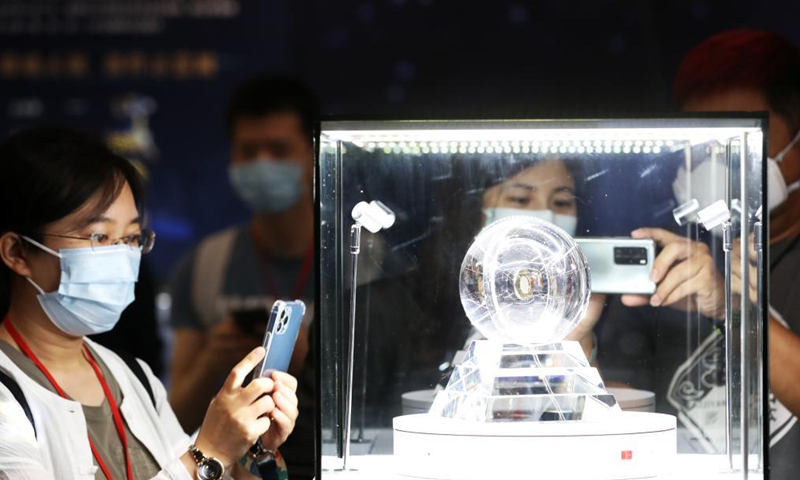
Visitors take photos of an exhibit at the Hong Kong Convention and Exhibition Center in south China's Hong Kong, June 25, 2021. Lunar soil brought back by China's moon mission was on display Saturday in Hong Kong.Photo:Xinhua
A national "star team" of scientists from the country's top space projects visited HKSAR in June, including commanders and chief designers of the country's Long March carrier rocket series, Shenzhou manned space programs, BeiDou Satellite Navigation System and the Tianwen-1 Mars mission.
Along with the "star team" came the much-anticipated lunar soil samples brought back by the Chang'e-5 lunar probe from its epic trip last December. HKSAR Chief Executive Carrie Lam said in the inauguration ceremony in June that she expected more engagement from the HKSAR for the country's aerospace program, as the national platforms provide Hong Kong's tech communities with brighter prospects.
"Seeing the country's steady steps toward space, the recent events in Hong Kong have made residents realize that our country no longer lags behind but has even surpassed most of the Western countries in this field, which has boosted their sense of confidence and pride in being Chinese," Dang said.
The three taikonauts - Nie Haisheng, Liu Boming, and Tang Hongbo - arrived at the Tianhe core cabin on June 17 and embarked on their three-month journey in space. Adding to the seven crew members onboard the International Space Station, the Chinese have brought the total space population to 10, marking the first time that the number of human beings in space reached double digits.
It has brought China to a world-leading position in terms of in-orbit astronaut population, as China plans to rotate its taikonauts on a routine basis to ensure no less than three people are onboard the space station, which is at the same level as the US and Russia.
